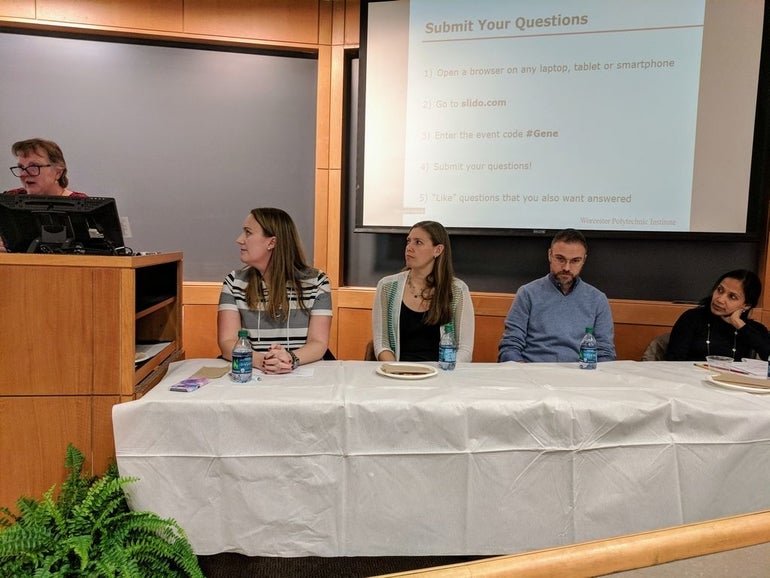A Chinese scientist who said he’s created the world’s first gene-edited babies raises a range of serious ethical questions, a panel of critical Worcester Polytechnic Institute professors said Wednesday.
The news last month the scientist, He Jiankui, used CRISPR, a gene-editing technique, on twin girls made international headlines and raised concerns by many in the scientific community. Human embryos were modified to disable a protein that can cause H.I.V. and then planted into a woman’s womb.
The genes were edited in a way that will be passed on through the girls’ own offspring.
WPI quickly scheduled a panel to talk to students and others on campus about the implications the girls’ birth could have on science.
“This came as a shock to us in the field because it was very secretly done,” said Jean King, a neuroscientist and dean of arts and sciences at WPI. “We short of stumbled into this brave new world of gene editing.”
The breakthrough raises a series of serious questions, said Patricia Stapleton, an assistant professor of social sciences who has published research on CRISPR. Who, she said, will be responsible for regulating gene editing? What will be the priority of scientists using or studying it? How will gene editing exacerbate disparities of medical care among those who can afford costly procedures and those who can’t?
A moratorium is now in place holding up federal funding for gene editing research, Stapleton said. That leaves a gap in oversight on research taking place anyway.
“There’s really no enforcement or compliance,” she said.
Bethel Eddy, an associate professor of humanity and arts who studies ethics, said new gene editing capabilities raise concerns about whether we know enough about potential consequences to be conducting the work on humans in the first place. A question of consent must be asked for the girls whose DNA was changed before their birth, she said.
“It’s a question for humanity at large, not just the scientific community,” Eddy said.
Other experts were also critical.
“It seems like Professor He did this just because he could, which is troubling,” said Reeta Rao, an associate professor of biology and biotechnology.
Questions were also asked at the panel, including among students, whether the breakthrough in China even took place as reported. It hasn’t been published through a peer reviewed journal, chemistry and biochemistry professor Destin Heilman noted, calling the incident undoubtedly unethical if it did take place.
“It could be that the whole thing is fabricated,” he said. “We just don’t know.”

